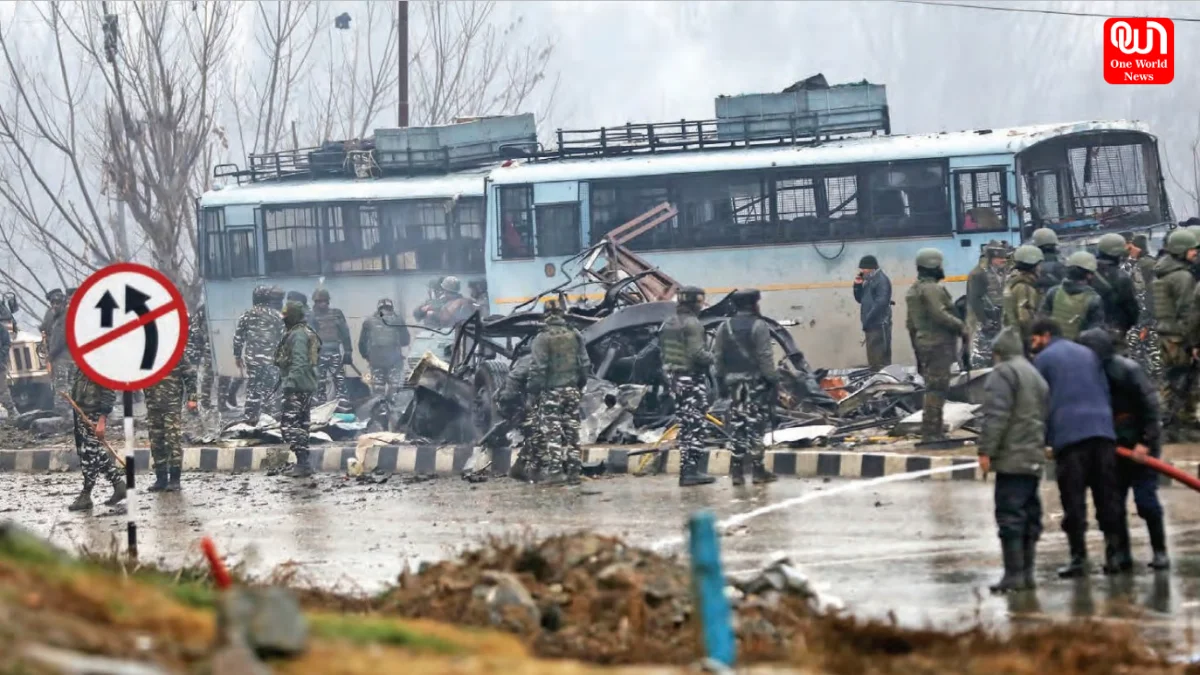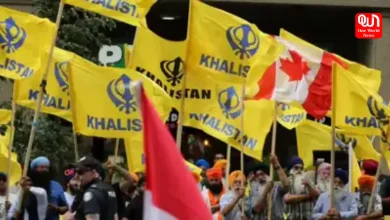Pulwama Assault: Timeline, Retribution, and Safety Measures
Pulwama Terror Attack, which Killed 40 Central Reserve Police Force (CRPF)
The Pulwama assault was among the most lethal terrorist strikes against Indian security forces on 14 February
2019, resulting in the martyrdom of 40 Central Reserve Police Force (CRPF) members. The assault, involving a vehicle packed with explosives crashing into a CRPF convoy, was executed by the Pakistan-based terrorist organization Jaish-e-Mohammed. In the wake of this heartbreaking event, 14 February is commemorated as a day of grief in the nation. The Pulwama attack ignited intense anger in India, leading the nation to implement strong retaliatory measures with the Balakot airstrike.
Pulwama Assault
On 14 February 2019, a suicide bombing occurred against a convoy of the Indian paramilitary unit Central Reserve Police Force (CRPF) in the Pulwama region of Jammu and Kashmir. In this assault, 40 soldiers lost their lives. An explosive-laden vehicle struck the soldiers convoy as they were making their way to Srinagar. The assault resulted in a surge of mourning throughout the nation, and it was regarded as one of the most lethal assaults on Indian security personnel. The Pulwama attack reignited discussions around terrorism and security matters in the nation, and is considered a significant historical milestone.
National Mourning and Safety Initiatives
Following the Pulwama attack, remembrance gatherings take place nationwide annually on 14 February to honor the martyrs. This day is recalled as “Black Day.” The assault not only rattled the confidence of the security personnel but also brought the nation’s citizens together in opposition to terrorism. Subsequently, the government implemented various significant measures to enhance the protocols. Border security was strengthened, measures against terrorist were heightened,and security personnel were provided with advanced equipment.
Accountability for the Assault and Counteraction
The attack was claimed by the Pakistan-based terrorist group Jaish-e-Mohammed. Shortly thereafter, India adopted a firm position in both political and diplomatic spheres. On 26 February 2019, the Indian Air Force executed an airstrike against Jaish-e-Mohammed terrorist camps situated in Balakot, Pakistan, known as the “Balakot Air Strike.” The strike was interpreted as a response to the Pulwama attack and evolved into a representation of India’s assertive stance against terrorism. The action was also talked about globally and demonstrated the strategic strength of India’s military.
How severe was the Pulwama Attack?
This is the most devastating terror attack in the state since the Uri incident in 2016. The explosion from the attack was so powerful that it was audible from 10-12 km away, reaching areas in Srinagar near the Pulwama district. This was the initial suicide car bomb attack in Kashmir since the 2001 incident targeting the Jammu and Kashmir Legislative Assembly, which resulted in the deaths of 41 individuals, including three suicide bombers.
A minimum of 37 CRPF members have lost their lives in a terror attack on a security force convoy. Over 2,500 personnel from the Central Reserve Police Force, many returning from leave to resume duty in the Valley, were in a convoy of 78 vehicles when they were attacked on the Srinagar-Jammu highway at Latoomode in Awantipora, southern Kashmir, at approximately 3:15 pm.
Pulwama Attack Retaliation
Following the Pulwama attack, India revoked the most favoured Nation status that it had earlier conferred upon Pakistan. The High Commissioner of Pakistan in India was also called for talks. In the early hours, Indian military aircraft targeted terrorist shelters within Pakistan and effectively obliterated a Jaish-e-Mohammed training facility. This operation was a powerful and prompt reaction to the suicide bombing that led to the deaths of 40 CRPF members on February 14. The courage displayed by the Indian Air Force in executing this mission, which entailed venturing far into hostile territory and returning unharmed, is praiseworthy, as it is a difficult endeavor that demands significant skill and bravery.
National Days of Mourning and Security Protocols
Following the Pulwama attack, commemorative gatherings are conducted nationwide each year on 14 February to honor the martyrs. This day is recalled as “Black Day.” The assault not only weakened the resolve of the security forces but also brought the nation’s citizens together against terrorism. Following this, the government implemented several significant measures to enhance the security arrangements. Border security was heightened, efforts against terrorists were amplified, and security personnel were provided with advanced technology.
Pulwama Assault: Our Warriors Our Honor
Our soldiers represent our pride. They not only safeguard our borders but also provide selfless service by addressing internal issues, while proudly representing our country’s flag in sports. They additionally provide their service on a global scale by aiding humanity around the world. As responsible citizens of this country, it is our obligation to recognize and comprehend the emotional and physical equilibrium of the duties they risk, whether concerning their families or for the entire nation.
Let us pause for a moment in our hectic lives to reflect on the immense sacrifice of our soldiers who serve their country under extraordinary conditions, allowing us to live in peace.
We’re now on WhatsApp. Click to join.
Like this post?
Register at One World News to never miss out on videos, celeb interviews, and best reads.








